16, March 2021
Southern Cameroons Crisis: The tales of agony are heartrending 0
Prior to October 2016, not many Southern Cameroonians thought they would ever be internally displaced in a country they felt was theirs nor did they ever think they would become helpless refugees in neighboring Nigeria.
But in October 2016, their lives suddenly changed, unfortunately for the worse. The country’s English-speaking minority had had enough of government instituted marginalization and discrimination, with lawyers and teachers downing their tools and taking to the streets to make their grievances known to a government that had decided to be deaf and blind to the sorry plight of Southern Cameroonians.
The Yaoundé government has never been reputed for dialoguing and it views dialogue as a sign of weakness and it was in no mood in 2016 to change its old bad ways.
This is a government that has a huge tool box but in that massive box, there is only one old rusty tool – violence – which has not been effective in recent times.
Times have changed but the mindset of those ruling the country seems to be frozen in time. Of course, if you have a hammer, everything you see will surely be misconstrued as a nail that needs to be hit hard and that was where the government made its mistake that has triggered a bloody insurgency that has caught the attention of the international community, with many Western governments calling out on the corrupt Yaoundé government.
The government’s reaction to the demands of the country’s English-speaking minority has created a pretty mess that has left thousands of Southern Cameroonians both at home and out of the country in a really unfortunate situation.
While those who are internally displaced are living rough in towns and cities in East Cameroon, those who skipped the border into Nigeria to escape the government’s Kafkaesque brutality are gradually losing hope and many are calling on kind-hearted individuals to stretch their hand of charity to them.
Among those who escaped to Nigeria are desperate women whose children are not having access to Nigeria’s educational system.
Though education at the primary school level is free, there is no guarantee that children from poor backgrounds can have the education they need to cut out a place for themselves under the sun.
If many Nigerian children cannot access education due to poverty, how will refugee children whose parents escaped their native Southern Cameroons, living everything behind, have access to such education?
Education is simply not the availability of brick and mortar. Buildings alone will never guarantee a child unfettered access to quality education. Food, transportation and books will surely guarantee a child a bright future, especially in an environment wherein the government makes the education of everybody living within that geopolitical entity a huge and significant necessity.
But this is not the case of Southern Cameroonian children who are seeking refuge in neighboring Nigeria. The schools are there but Southern Cameroonian children are unfortunately at home because their parents cannot afford textbooks and other school materials that they need to be effective in school.
At the secondary school level, the United Nations High Commission for Refugees (UNHCR) subsidies are helping, but they do not go far enough. They do not cover many needs expressed by these refugee children and this is really retarding their progress. Their main concern is only to acquire education that will make them useful citizens of the world but education does not seem to be within their reach.
But the agony is more painful when you consider that there are young graduates among the refugees who are unfortunately and unhappily watching unemployment robbing them of their happiness and youthfulness.
In search of a reliable anchor, they have been bouncing in and out of the settlements where they have been caged in Nigeria in search of hope and happiness.
They are without jobs and it is almost impossible for them to learn a trade. A hungry man is an angry man and these young men bear their anger on their faces. They are frustrated and disappointed by leaders who have placed their ego above their citizens’ interest.
Their country of origin – Cameroon – has rejected them and despite calls by the international community for the Yaoundé government to embrace dialogue and negotiations which will enable refugees to return to their homeland, the Biya government insists that only violence can bring this conflict to an end.
These young men are caught between a rock and a hard place. Their country does not think of their future and their host country clearly lacks the means and resources that can enable them to change their ugly and unfortunate fate.
Many of them want to further their education, but they lack the resources that can make their dreams come true.
This unfortunate situation has been compounded by the lack of scholarships and good Samaritans who can help them go back to school are few and far between.
To many of these desperate young men, their future is bleak and this uncertainty might push many into crime or push them over the border to Cameroon where their last option will be to bear arms in order to eke out a living.
While Nigeria and the international community are doing their best, the Yaoundé government must step in to help these youths who may become a millstone around everybody’s neck if they are not made to see hope in the future and the beauty in life.
By Ngalle Lyonga in Nigeria reporting for the Cameroon Concord News Group
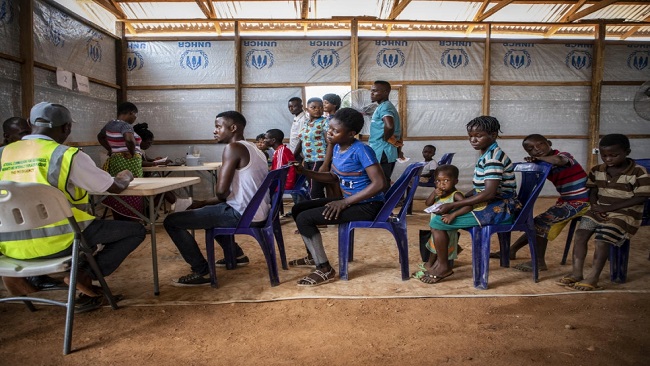
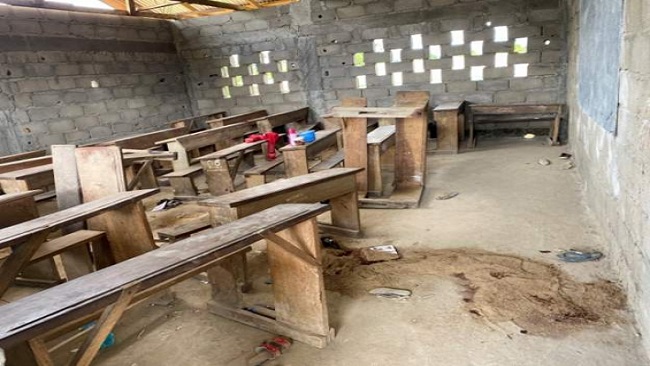
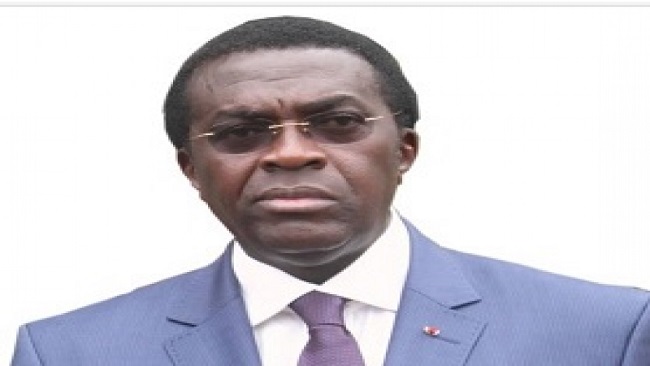
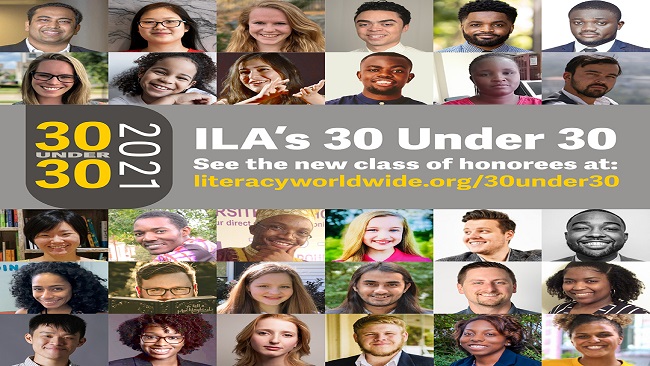
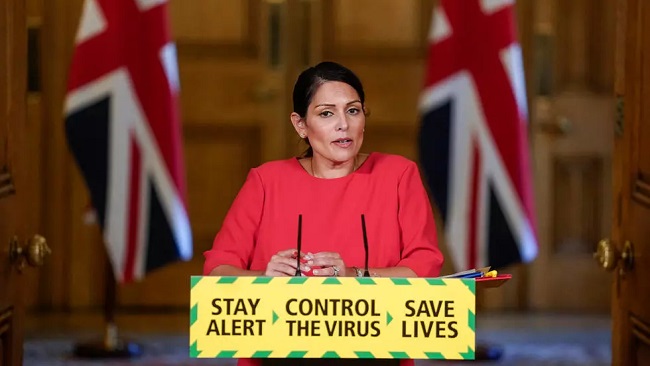

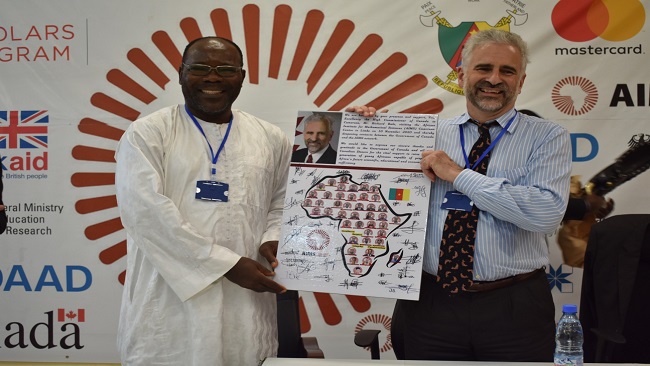


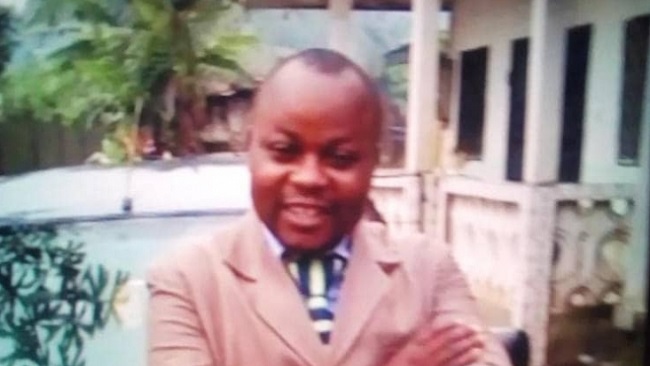

















22, July 2021
Southern Cameroons Crisis: Church schools targeted in Ambazonia 0
Schoolchildren are deliberately attacked, abducted and killed in Cameroon’s increasingly violent Anglophone crisis. An independent investigation has verified 13 recent attacks using satellite images, finding both government soldiers and armed separatist groups responsible. Catholic and Presbyterian-run institutions are among the schools targeted by all sides in the conflict. It is thought that two hundred schools have been attacked or set on fire since 2018.
In 2016, the Francophone-dominated government of President Paul Biya tried to impose a French curriculum on English-speaking schools, while demanding that the French legal system replaced English Common Law in courts in the Anglophone regions of North West and South West.
In response, armed groups demanding an independent Anglophone nation called Ambazonia called for a boycott of schools and a weekly “ghost towns” that shuttered the economy. A warning from the Ambazonian Restoration Forces appeared on Facebook in August 2019, telling parents not to send their children to school, saying, “You will have only yourselves to blame.”
After the attacks began, parents withdrew their children, forcing education in the Anglophone regions to cease. The UN estimates that one million youngsters (out of a total Anglophone population of six million adults and children) have been out of school for almost four years. The Cameroon ministry of basic and secondary education recently announced that 70,000 children have now returned and 400 schools have reopened. However, it is understood that those schools are in towns and cities, whereas institutions in more remote areas are reluctant to reopen for fear of attack.
The Bellingcat report draws on years of research by the Cameroon Anglophone Database of Atrocities, working with the Berkeley Human Rights Center. Many of the attacks have taken place in the diocese of Bamenda which is twinned with the UK diocese of Portsmouth. St Augustine’s Secondary College in Kumbo was attacked in May 2020; in October 2020, men on motorcycles armed with machetes and guns killed seven children and wounded a dozen at Mother Francisca International Bilingual Academy in Kumba; and in January 2021, the Presbyterian secondary school in Mankon, Bamenda was torched.
A Presbyteran school in Nkwen near Bamenda was subject to two attacks in 2018 during which almost 100 teachers and children were abducted, interrogated and held for ransom. They were eventually released unharmed. In November 2020, the students and teachers at Kulu memorial College were forced to strip and then run into the bush before the building was burned. In the North West region, the wing of a Catholic school in Kambe was burned in February 2021.
Bellingcat is an independent international collective of researchers, investigators and citizen journalists. It’s report, “How Schoolchildren became Pawns in Cameroon’s Anglophone Crisis,” is based on painstaking work by volunteers at the Cameroon Anglophone Crisis Database of Atrocities and the Berkeley Human Rights Center, videos posted on social media by civilians, soldiers and armed groups, and opensource material and satellite imagery.
The Bellingcat report quotes teachers who “walk a thin line” between the armed separatists enforcing the boycott and the government security services which are trying to end the ban. In addition, teachers say they are targeted by criminal gangs extorting money. The Voice of America quotes Nji Samuel Kale of the Presbyterian Church in Cameroon, saying, “The community and the Christians help us run the schools. The teachers, we must attest, they have been enduring a lot. They have shown a lot of resilience.”
Most of the separatist leaders live overseas, meaning that their children are not missing school. They refuse to back down unless they are seen to win concessions from the government. Meanwhile the Swiss Centre for Humanitarian Dialogue continues to offer to host inclusive peace talks. Both the government and armed separatist groups have declined to participate.
Before he died earlier this year, Cardinal Christian Tumi warned that violently enforcing the schools boycott was turning the Anglophone population against the separatists. He mentioned a girl whose hand was amputated by separatists as she went to sit her exams. Cardinal Tumi was kidnapped and interrogated by an armed Anglophone group in November 2020. He was later released unharmed but died in April 2021, age 90.
Historically, the Catholic Church, as well as Anglican and Presbyterian missions, have run schools and clinics across Africa in the absence of comprehensive, good quality education and health provision by governments. In addition, faith-based entities are estimated to provide between 30% and 70% of health services. There are no reliable figures for how many schools are provided by faith groups on the continent.
Source: Independent Catholic News